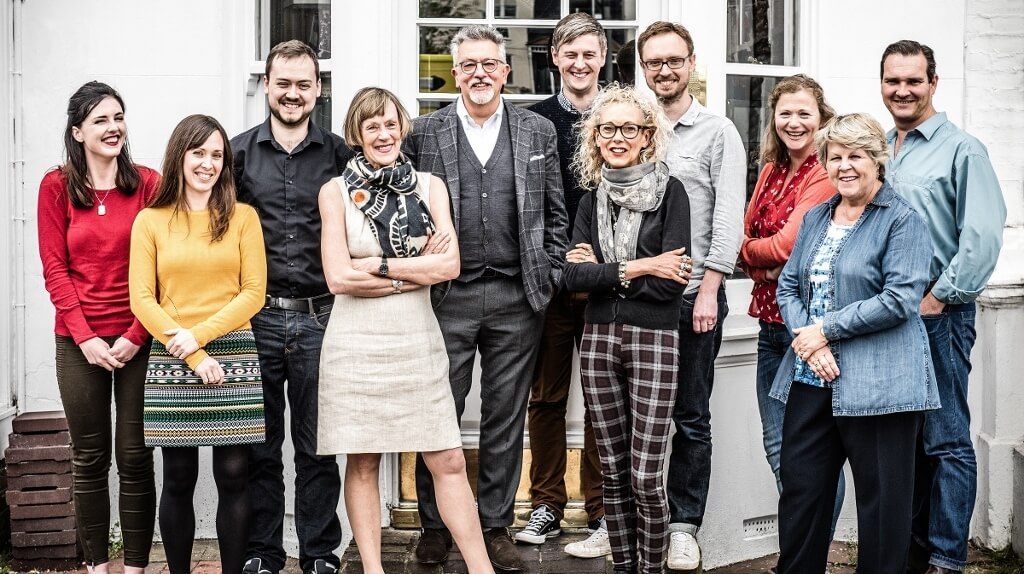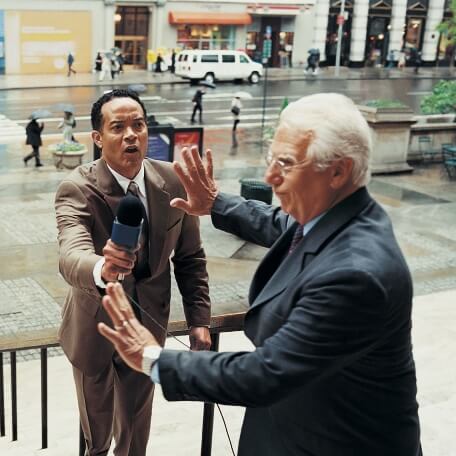In a digital age, running an independent book publishing company is a tough gig. But The Salariya Book Company has made a success of it for more than 35 years. Here's how.
David Salaryia: The Salariya Book Company
In a digital age, running an independent book publishing company is a tough gig. But The Salariya Book Company has made a success of it for more than 35 years. Here's how.

David Salaryia, founder of The Salariya Book Company, describes how his publishing business has ridden waves of change in the industry and explains how, in an era dominated by global giants, independents can still get a foot in the door.
Describe your business
The Salariya Book Company is an independent publishing house. We mainly publish children’s books, from high-contrast board books for babies to early learning and picture books for pre-schoolers through to information, fiction and graphic novel titles for older children – everything a child would want to read.
Where did you get the idea for your business and why did you think there would be demand?
I have been illustrating, designing and writing books since 1979. In the mid 80s I began creating design-led concepts for books, integrating words and pictures with exploded or cutaway artwork.
The core aim has always been to make our information books fun and accessible and to create a sense of wonder in children about the real world.
There is always a demand from schools and parents for new books for their children, especially educational ones, so if we could create appealing children’s books I knew there would be a large and ever-replenished audience for them.
Plot the growth story to today.
Initially we worked with talented authors, artists and editors to supply books to publishers as an editorial packager. In 2002 we started publishing books under our Book House imprint and went on to launch our Scribblers list for babies and pre-school children in 2007.
Our children’s fiction imprint Scribo followed two years later. We sell our books in the UK and globally, across Europe, the US, and Asia. We have grown over the years into a team of twelve people, with departments covering editorial, design, production, rights and sales.
What is your market sector like for new entrants?
With print-on-demand, eBooks and different digital formats enabling many people to self-publish, anyone can produce a book in small quantities – the difficulty lies in getting attention.
Children’s publishing remains a growth sector in the industry, so a new publishing house wishing to specialise in the market has plenty of potential to succeed, provided it can provide books that are distinctive and of a high quality that audiences want.
Is there a big opportunity and what do you hope to achieve in future?
Opportunities lie in building a literate world: making sure children and adults everywhere are given the ability to learn to read and that we, as publishers, are striving to make books and content that is inclusive of children of different ethnicities and disabilities. Children born into a digital, media-saturated world will need media-rich content.
To this end, we're now looking to build a multifaceted multimedia property out of our existing back catalogue and company identity. Part of this has involved creating digital teaching resources for teachers and children alike, such as quizzes and short plays that can be performed in the classroom, that have been packaged onto our new website as free supplementary materials to our books.
Another plan is to build an interactive educational game around our highly successful You Wouldn't Want To Be books; a series of humorous, illustrated history and science titles aimed at children aged 7+.
The aim in 'gamifying' our intellectual property is to reach out to young groups of readers who are typically reluctant to engage with books, particularly boys, and encourage them to associate reading with other activities that they might consider more cool and fun, such as playing computer games.
What have been the major bumps in the road (be honest) and how have you overcome them?
The marketplace supports the larger multinational publishing houses and trying to get space in bookshops as a small independent publishing house is a constant battle, but if you are careful to target specific titles at appropriate venues (such as selling our recent Great Fire Of London! book to the Museum of London) then it is still possible to get your foot in the door and achieve good sales.
How have you marketed the business?
Finding ways of attracting attention or being discovered in an over-saturated media landscape is a permanent challenge. We have marketed in mostly traditional ways: magazine advertising, YouTube videos, and author events.
We made ‘web books’ fifteen years ago: these electronic books were free on our website, and we found that this brought traffic and spread information about the series.
We now have 120 print titles in that series and the books reprint on a monthly basis. We had a play based on one of our titles at the Edinburgh Festival this year and we plan that this will tour schools.
What is the hardest thing about running your own business and what makes it fulfilling/fun?
Having to switch quickly between being creative and then having to get down to the brass tacks of financial analysis. Sometimes it can feel like needing to have two brains!
What makes it fulfilling is that you can have a spark of an idea and nurse it all the way through to seeing it published. This can be very satisfying, especially if the book is a success!
What one thing would you change about doing business in the UK?
For publishing, removing VAT from eBooks would be a good start.
What is your biggest mistake?
Negative experiences are difficult to talk about; we always try to present our business or ourselves in the best possible light. I take comfort from Winston Churchill’s quote that ‘Success is stumbling from failure to failure with no loss of enthusiasm’.
If you worry too much about making mistakes you wouldn’t do anything.
I will, however, spend many hours analysing why the mistake happened and will make sure that type of mistake doesn’t happen again. What was a sensible well-thought-out decision today can become foolhardy overnight with changes in circumstances.
Making an unsuitable appointment can have a devastating long-term impact, as can taking advice from ‘experts’ who turn out not to be as expert as you had been led to believe!
What sets your business apart from the rest and how have you nurtured that point of difference?
Our use of ‘humour’ aligned with our high design and editorial standards to make books that really appeal to children.
How you developed your staff - how do you recruit, how do you inspire your people and what incentives do you give them to stay loyal?
Choosing talented people and giving them the freedom to work in a creative, positive environment. Allowing everyone to be part of the decision making process and understand why decisions are being made. Training and attending specialist conferences is also extremely important for staff of all ages.
How do you rate government support for growing businesses and why?
Government websites are certainly full of information laid out in helpful ways and, like everything now, if you want to find an answer to a question you can usually find a way online.
What are your top three tips for people starting a business today?
Know your finances. Find experts in areas you do not understand. And don't try to do everything yourself.
Thanks for signing up to Minutehack alerts.
Brilliant editorials heading your way soon.
Okay, Thanks!




